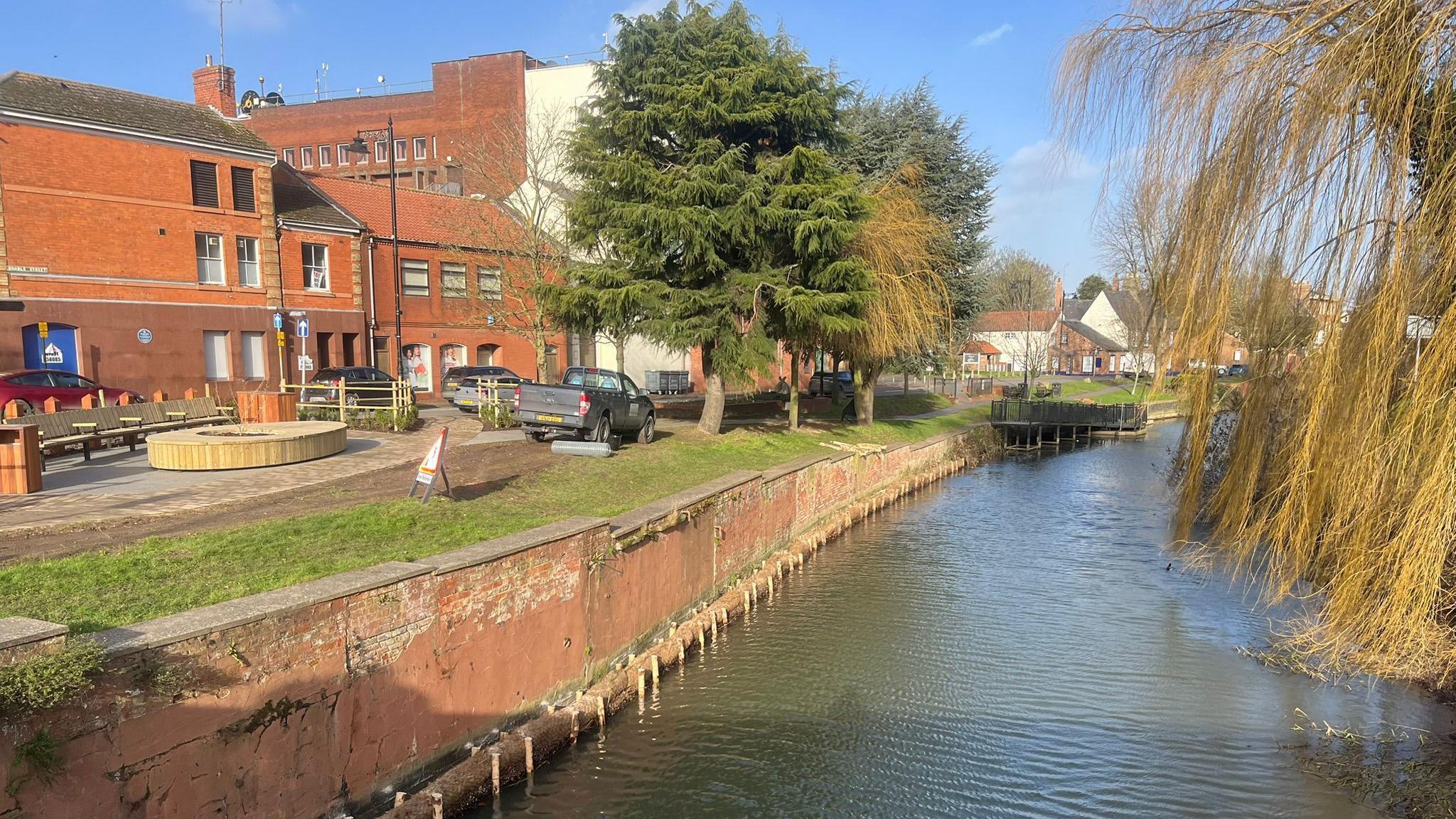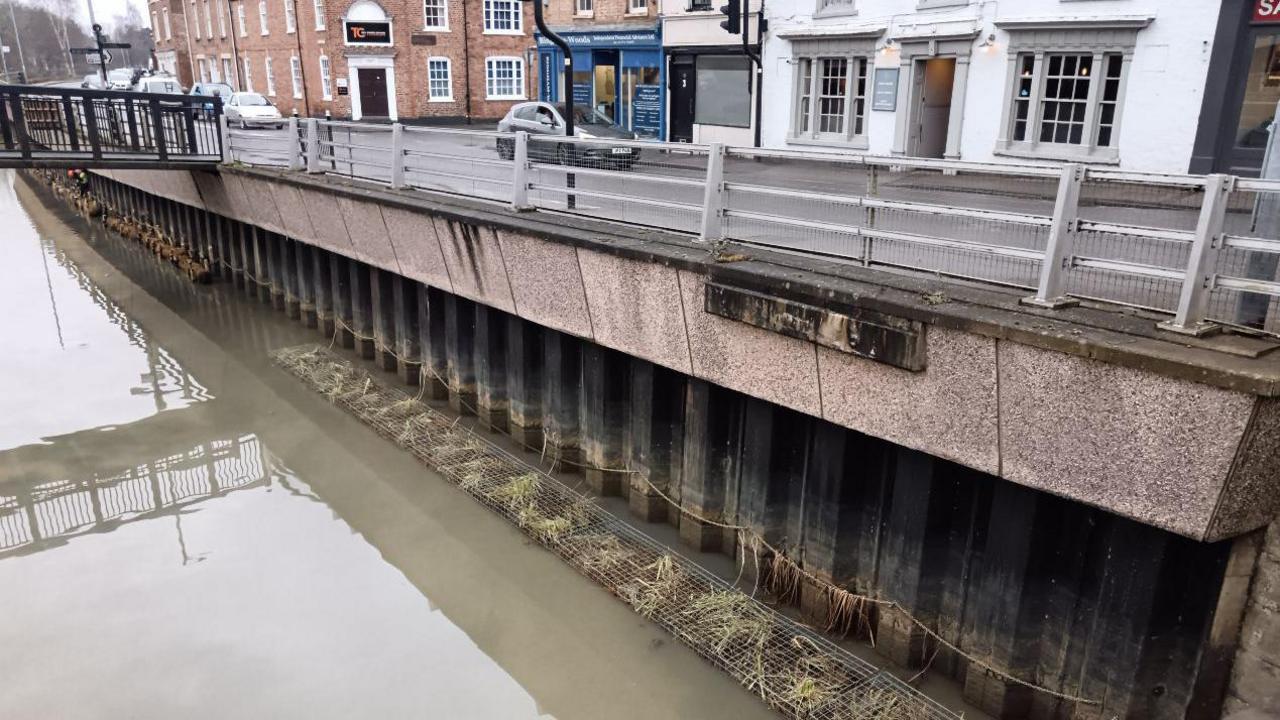River project has 'improved area for wildlife'

The council said the project had "improved the look" of the town
- Published
An environmental project on the River Welland in Spalding town centre has improved the area for wildlife, the council has said.
The riverside has been planted with moisture-loving plants and floating islands have been installed along the bank by High Bridge.
The river channel improvements were delivered by East Mercia Rivers Trust (EMRT) as part of the Spalding Reconnected: Historic Town & Riverside project.
South Holland District Council said protecting and investing in the "beautiful" river had also "improved the look" of the town.

The riverbank at this location is entirely artificial and offered few locations for wildlife until floating plants were added
EMRT project manager Patricia Oliveira Antunes said: "The left riverbank at this location is entirely artificial, thus offering limited resources to wildlife."
Yellow flag iris and purple loosestrife and coir rolls have been installed to provide food and refuge for fish, birds and invertebrates, including pollinators.
Wildflower patches have also been planted along the river and living willow sculptures and other artwork has been installed.
The project was funded by a grant from The National Lottery Heritage Fund, the Environment Agency and Anglian Water.
Gary Taylor, from South Holland District Council, said it was an "important environmental project to safeguard and enhance the River Welland".
Nick Jones, from Transported Art who were involved with the willow art work along the riverside explained that willow was traditionally used for making eel traps.
"Walking along the riverbank has been enhanced by these artworks, with passers-by sharing their gratitude and memories, especially of the area's eel fishing history," he said.
Listen to highlights from Lincolnshire on BBC Sounds, watch the latest episode of Look North or tell us about a story you think we should be covering here, external.